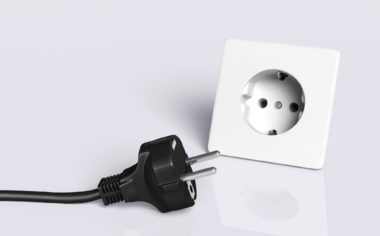Podcast: Download
Subscribe: Apple Podcast Google Podcasts Spotify
Visit our Marketing Nerds archive to listen to other Marketing Nerds podcasts!
As digital marketers trying to keep up with clients, constant changes in technology, and life in general, how do we keep ourselves from burning out? Kathleen Garvin of The Penny Hoarder and Amanda Russell of Ghergich & Co. join former SEJ Features Editor Danielle Antosz to share their insights on how to avoid burnout. Kathleen, Mandy, and Danielle also discuss how technology has affected the way we work and share tips and tools to disconnect.
What kind of new pressures do you notice we have today that we didn’t use to have ten years ago? Also, how has technology changed the way we work?
Mandy: I think part of the big change, part of the switch that’s happened in the past decade or so is that there’s so little privacy with the internet and with social media. Not only do your employers know more of what’s going on with your life but you know more of what’s going on in your friends’ lives and you get that life ADHD a little bit, where you’re like, “Well, I’m working this job but the grass looks greener over here. Maybe I need to try that out.” I think that helps to propel us toward this burning out feeling where everybody else seems happier than you are or you’re not as successful or what have you. I know I look around a lot and I see my colleagues and my coworkers and they’re doing these amazing things, and I wonder if that’s something I should be doing. Am I doing things correctly?
I would have loved to find a company where I could stay for 40 years and feel like I’ve really made a contribution. Yet I do this job hopping thing because I keep thinking, “The next step, the next step, the next one is going to be the right one.” It keeps life interesting but I know, too, that employers look at it and they’re just, “Well, how long are you going to stay with us? What should we expect from you?”
With this shift and the negativity that comes with it, the feeling like you can’t really unplug, do you think the trade offs are worth it?
Mandy: When I started working for Ghergich, it was a completely different ball game. I’m working from home, I can do whatever. I can work in my pajamas, I can roll over, open my laptop, and answer emails while I’m still in bed. That has been a freedom that I never knew was possible. It allowed me to take this opportunity and work remotely and I’m not taking vacation time. I work 9 to 5 then I go out and explore and do things on the weekends.
That has been huge for me. It’s only because of the internet and being connected, and my employers knowing that, “If we need Mandy, we can just message her and it’s fine. It can be 8 p.m. but if we absolutely need her, she’s there, even though she’s in Mexico.” You have to take the bad with the good. The bad is that, I see all my friends who are doing these amazing things and I want to be successful or, just like we said, grass is greener. But then, I get to follow my dream and my love of travel while still working and that’s pretty freaking fantastic.
Kathleen: Sure, I think you hit the nail on the head about taking the good with the bad. I think you have to. The internet does give us so many possibilities to work remotely or work a completely internet-based job which is great and is something that I think our generation might be the first ones who fully take advantage of. I feel like it’s something you hear a lot more of, you see more people doing it.
What tools do you use to help you disconnect or work more productively?
 Kathleen: In my work, in addition to email, we use Slack. Slack is pretty much the primary conversation driver and we try to email as little as possible. I think Slack is good but we also work in an open office space so you can go up and go over to the person to ask them a question which is great.
Kathleen: In my work, in addition to email, we use Slack. Slack is pretty much the primary conversation driver and we try to email as little as possible. I think Slack is good but we also work in an open office space so you can go up and go over to the person to ask them a question which is great.
I don’t think I really found any tools that help in terms of increasing my productivity. It’s just been for me to know when to stop myself or maybe even just be alone with my thoughts. We are used to being in line now at the store. Anything else where your first reaction is to take out your phone and go on Instagram or something else, or text somebody, I try to be more mindful of that as well. I can be alone. I don’t need to be on my phone and again, take a breather, take a break. I will say that I don’t get any push notifications on my iPhone.
Mandy: I’ve struggled a while with fear of missing out — the FOMO phenomenon. Something that’s helped me more so than apps or whatever else is forcing myself to just leave my phone somewhere.
There are a lot of apps out there that make it easier to communicate, whether it’s WhatsApp or Slack or Skype. Those help a lot but making sure that I really disconnect and teach myself not to worry about missing that amazing post. It’s going to be okay, it really will be.
Kathleen: Exactly. Behavior modification, where you change the way you operate and you change the way people expect you to communicate with them. I think it also depends on your team. Do you have a boss who, no matter what, is going to expect you to answer your phone or be available at certain times of night when you should be off the clock? That’s difficult. But assuming you had control over your schedule, I think there’s absolutely nothing wrong with changing your habits, changing your behavior, and training people to let them know when they can communicate with you and that you are not dead if it takes you ten minutes to respond to their message.
How do you avoid digital burnout?
Kathleen: Definitely take some time off. Even if you don’t physically go anywhere, just have a mental health day. Use your time off wisely. Make sure you plan breaks for yourself. I was reading an article yesterday, it was an interview with Sara Blakely, the founder of Spanx. She said that as soon as you can afford to, hire your weaknesses. Hiring a VA is smart and if you can afford to, definitely do that to offload work and help clear some space to help you relax a bit, prioritize, and put your energy towards things that matter.
Take time off social media to give yourself a break and let yourself recharge. One app that everyone at work was talking about that I finally downloaded this weekend was the Calm app. It’s guided meditation and sleep stories. All of these things rolled into one I think are important for personal happiness and career success.
Mandy: Just being honest with yourself and doing what you can to pinpoint exactly what is causing the burnout. Because I know for me, whenever I’m having a bad week or I feel like I just don’t want to work anymore, I don’t feel like getting up for work. Whatever the case may be, there’s generally one specific reason. Either I need a vacation or I hate doing this task and wish I could delegate it. Once I’ve pinpointed it then I need to act on it to take care of it. To get it off my plate, to get it off my mind. If the burnout feeling is still there, then I need to see what else is going on.
To listen to this Marketing Nerds Podcast with Danielle Antosz, Kathleen Garvin, and Amanda Russell:
- Listen to the full episode at the top of this post
- Subscribe via iTunes
- Sign up on IFTTT to receive an email whenever the Marketing Nerds podcast RSS feed has a new episode
- Listen on Stitcher, Overcast, or Pocket Casts
Think you have what it takes to be a Marketing Nerd? If so, message Kelsey Jones on Twitter, or email her at kelsey [at] searchenginejournal.com.
Visit our Marketing Nerds archive to listen to other Marketing Nerds podcasts!
Image Credits
Featured Image: Paulo Bobita
In-post Image #1: alphaspirit/DepositPhotos
In-post Image #2: TaiChesco/DepositPhotos

![How to Avoid Digital Burnout [PODCAST]](https://www.searchenginejournal.com/wp-content/uploads/2017/02/SEJ-Marketing-Nerds-EP125.jpg)



